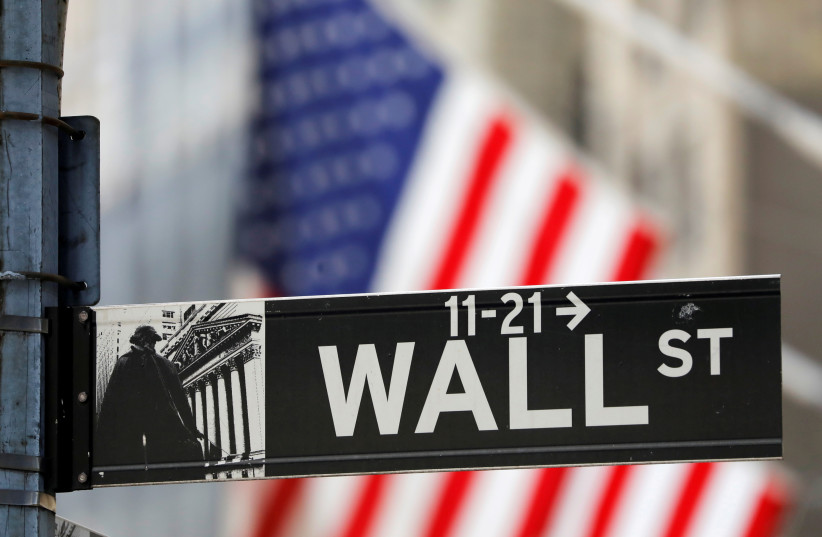Perhaps the most powerful man on Wall Street, Stephen Schwarzman, credits a trip to Israel as a teenager for inspiring his entrepreneurial grit. The son of a dry-goods store owner growing up in Philadelphia, Schwarzman recalled his first trip to the Start-up Nation as a 14-year-old.
“Israel has an incredible entrepreneurial community,” Schwarzman, 75, said. “Of course, it had to because when it started, there was almost nothing there. Everything had to be invented by somebody.”
That same year, back in the US, he started his first business – a lawn-mowing operation, employing his younger twin brothers to mow while he brought in the clients.
Today, with an estimated net worth of $35 billion, Schwarzman is CEO of Blackstone, one of the world’s leading investment firms. His first major donation to Israel was in 2018, when he gave the National Library $10 million. Last year, Blackstone opened its first office in the Jewish state.

Schwarzman, who is known to joke about his interfaith marriage with Christine Hearst, a Roman Catholic, fund-raises for an array of Jewish and Catholic causes, such the Archdiocese of New York and the American Jewish Committee. He sat down with The Jerusalem Post for a Rosh Hashanah interview.
<br>A few years ago, you made a generous donation to a library in Israel. Have you given any other philanthropic support to Israel? What do you look for when making such philanthropic decisions?
I gave to the National Library for a variety of reasons, one of which is my friendship with Jacob Rothschild, who was organizing this project. I thought it was a good project, to name a part of the library as a space for educational programs and activities for Jewish and Arab schoolchildren and educators. It’s a place where they can learn together and share cultures. They keep sending me pictures. I guess the project will be done sometime this year.
My first trip to Israel was in 1964. I spent a month there, on a trip my grandfather paid for as his bar mitzvah gift to me. I was really fascinated. It was a new country at that point. I kept looking for the trees that we gave money in Hebrew school to have planted in Israel. But I saw a lot of desert and was wondering where all my trees were.
That was an interesting start. My grandfather and my father supported an orphanage in Jerusalem. A few years ago, I gave them money to build a new gymnasium and locker room. I named it after my grandfather and father. I remember as a child, watching my grandfather packing up [donations] for Israel. I would ask him ‘What are you doing?’ He told me we have an obligation to support other people who aren’t as fortunate as we were. So I’ve continued that support as a third generation.
Last year Blackstone opened an office in Israel to invest primarily in Israeli growth companies. What is the opportunity you see for Blackstone in Israel?
Israel is one of the most innovative cultures in the world. Israeli technology is one of the fastest growing of any place. We are very interested in that kind of growth. We opened our office at the top of evaluations for those types of companies. We found that there was a good deal of competition, some of which didn’t even care what they paid.
I said at the time, we probably won’t get very much done quickly, and that will be a wonderful thing for us because prices will come down, and people will want to be with a stable, large firm like ourselves, where we can help people develop businesses. We are quite lucky in terms of when we chose to open in Israel because prices are really collapsing now, and we are able to provide capital to some of the Israeli companies. Israel is a winner in the new tech company area.
<br>You have invested around the world through many market cycles. How do you view the current economic landscape? Are you concerned about a recession?
The current landscape is challenging. Markets try to rally, and each time they do, the Federal Reserve makes an announcement saying, ‘I don’t think you’re listening to us. We’re going to raise rates quite high to decrease inflation.’
If the Federal Reserve is serious about that, the US is going to need a very significant slowdown. It’s already happening in Europe and China. It’s really up to the Federal Reserve to figure out what happens. To achieve its stated objective, it would be difficult to avoid a recession.
<br>Last year your book What It Takes was published in Israel. What do you hope Israeli readers learn from it?
Israel has an incredible entrepreneurial community. Entrepreneurs always have a difficult time starting, but they always have faith in their idea (which is why they start), only to find they have to scramble to be successful. That’s the experience I’ve had in my life, doing repeated things.
I’ve been told the book is perfect for people who want to try to do new things and want to be successful. It teaches leaders how to conceptualize what they’re doing, how to deal with and learn from failure, how to hire people, and how to be mostly stable through the extreme ups and downs.
